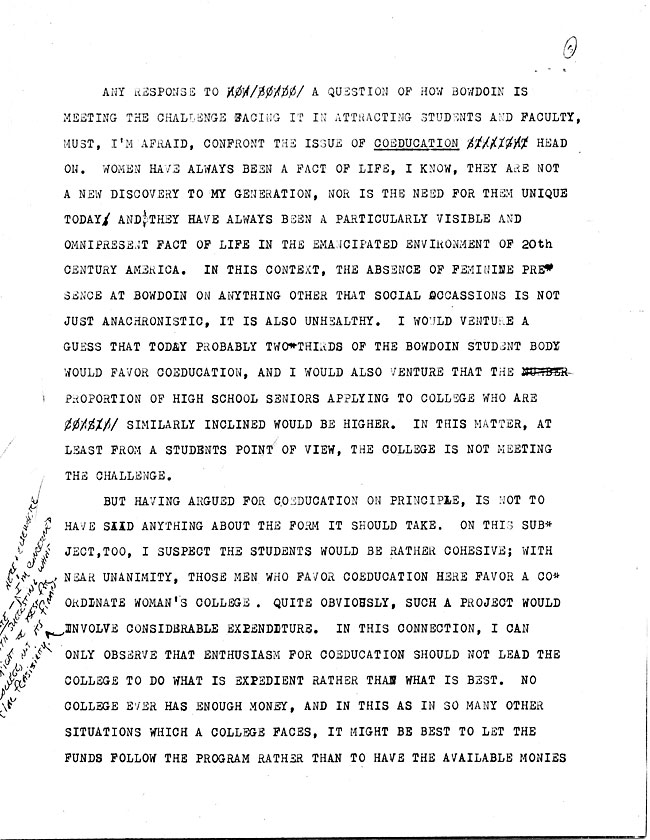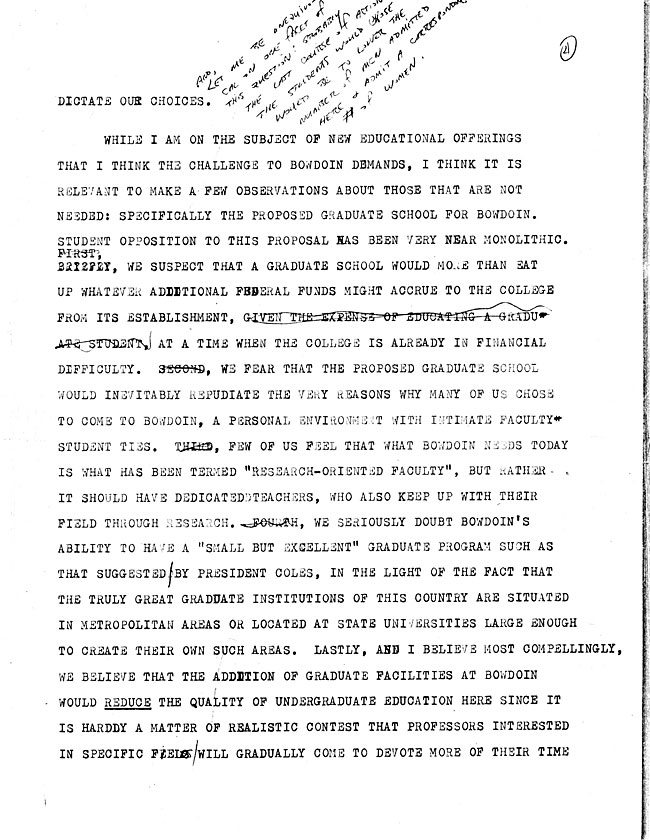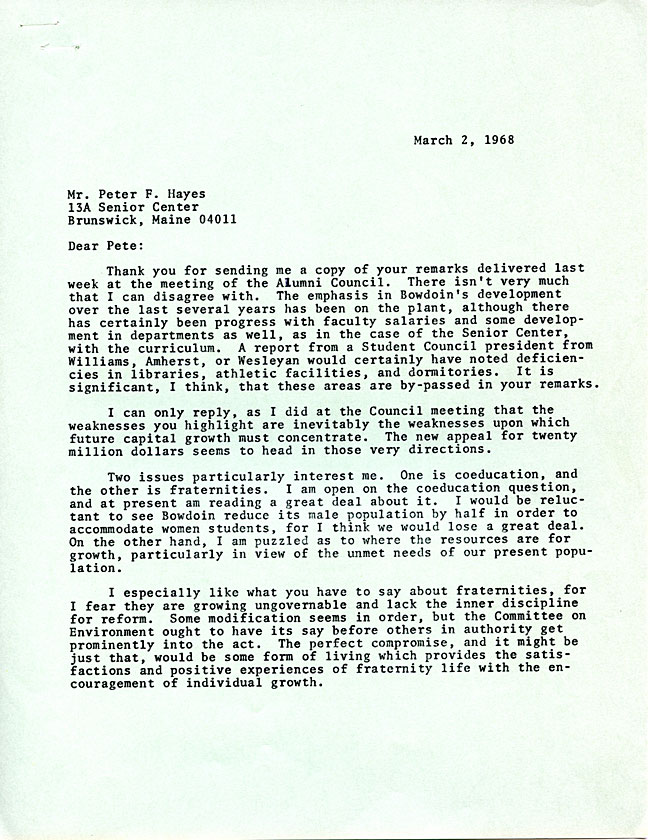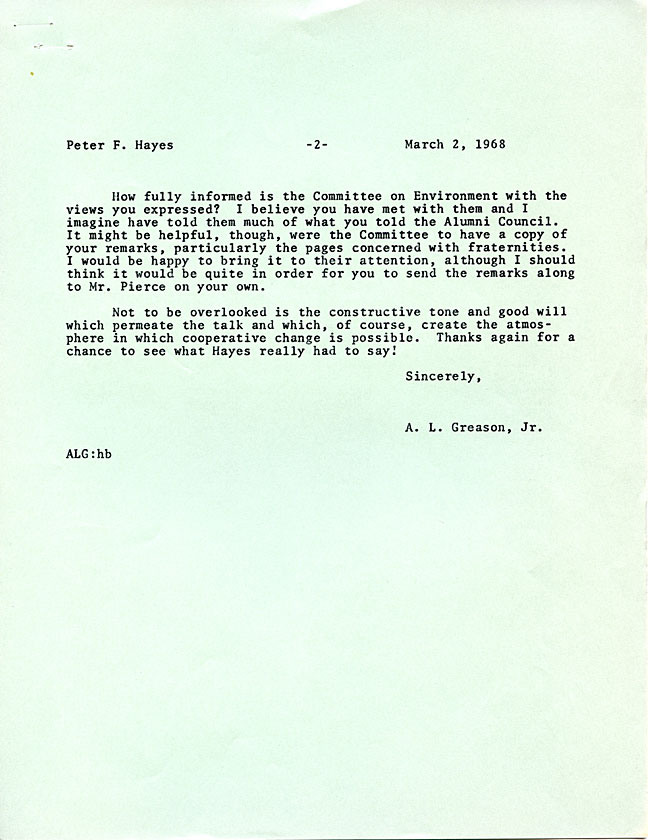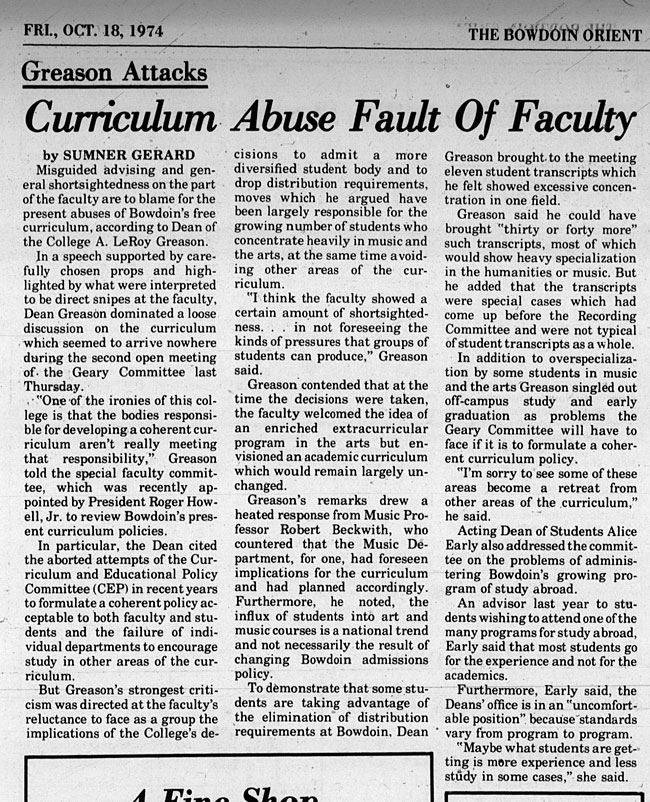Early discussions about the possibility of coeducation at Bowdoin occurred on a number of levels: in faculty and trustee meetings; in the Student Council; and between students, alumni, and staff in a variety of formats.
In this February 1968 speech given at a meeting of the Alumni Council (Document AW, 44.1), Student Council President Peter F. Hayes ’68 addresses the “state of the College”—particularly how the College should approach attracting new students and faculty members in the face of mounting financial pressures. He considers the question of coeducation, which he estimates that “probably two-thirds” of the student body supports “on principle.”
Hayes argues, however, that “with near unanimity, those men who favor coeducation here favor a coordinate woman’s college,” rather than a coeducational Bowdoin, and urges the Alumni Council, moving forward, not “to do what is expedient rather than what is best.” That is, it would be expedient to enroll women at Bowdoin, but it would be best to establish a coordinate women’s college nearby.
Although Hayes’ opinion cannot be taken as representative of all Bowdoin students, his role as Student Council President suggests that he is obligated to represent the dominant sentiment on campus in his remarks.
Hayes forwarded his speech to A. LeRoy Greason, who was then the Dean of the College, and who would later become the president, with a request for feedback (Document AW, 44.2). Greason responded that he was “open on the coeducation question,” although he was not, at the time, particularly committed to pursuing coeducation. The College, Greason writes, “would lose a great deal” if fewer men were admitted to make room for women students.
This correspondence illuminates one of many campus attitudes toward coeducation in the years leading to women’s official matriculation at the College. Although Hayes and Greason were by no means the only people on campus who were not enthusiastic about the idea of a coeducational Bowdoin, their attitudes are particularly important to consider, as both were representatives of administrative bodies that shaped student life outside of the classroom. Even though Hayes had graduated by the time the College admitted its first full class of female students, a reluctant Student Council or Office of the Dean of Students could set the tone on campus towards these newly-matriculated women, and present difficulties both inside and outside of the classroom.
